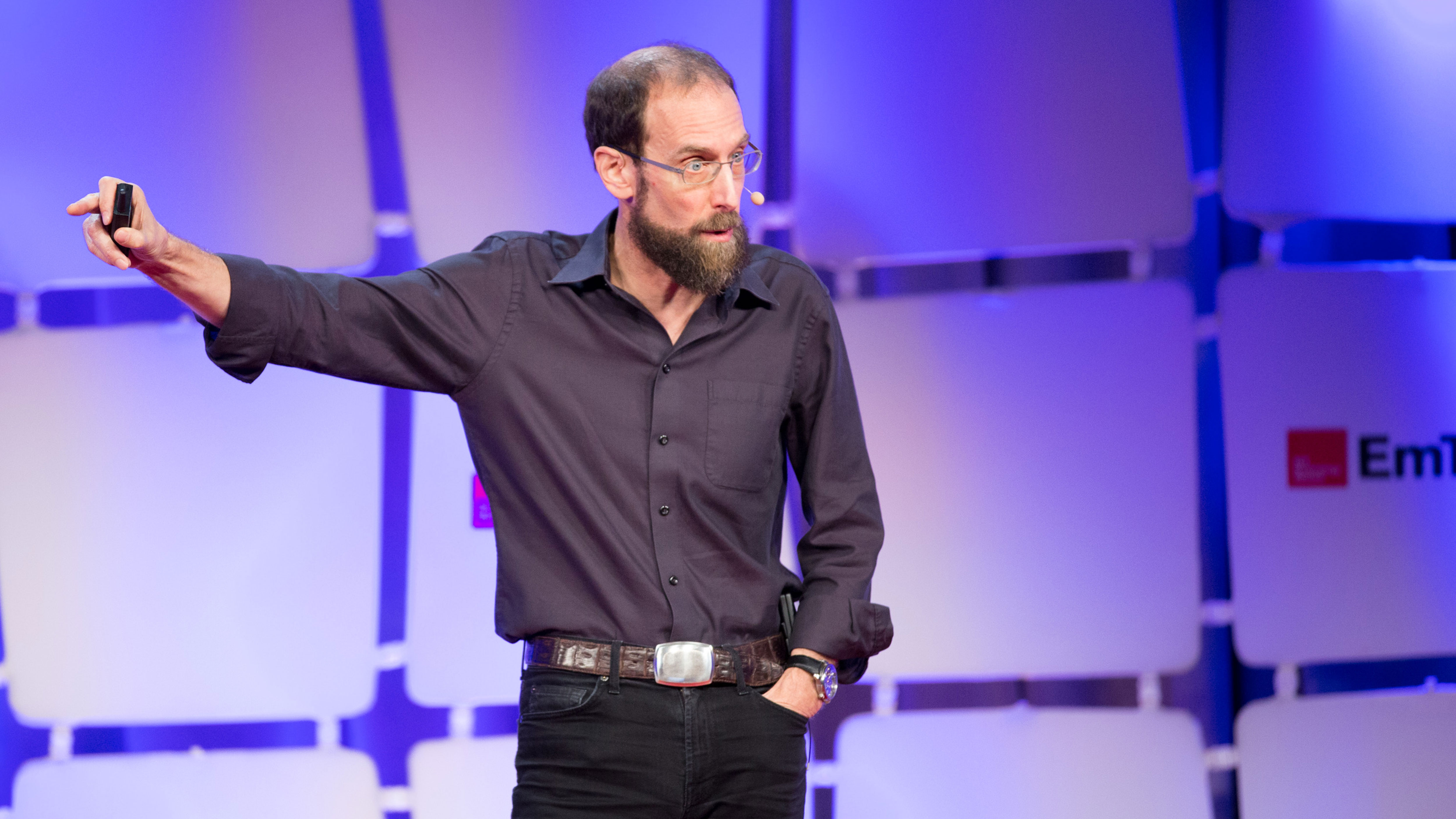Why This Geoengineering Pioneer’s Worst Nightmare Is a Trump Tweet

We know very little about the risks we might run if we tried to counter global warming by injecting aerosol chemicals into the atmosphere. But the limited research data we do have on so-called solar radiation management suggests that the risks are “relatively small” compared with the potential benefits of “sensible” deployment, according to one of the world’s preeminent experts on the topic.
Nevertheless, David Keith, a Harvard professor of applied physics and public policy, is worried that politicians with ulterior motives might try to accelerate the technology’s deployment.
Speaking Tuesday at MIT Technology Review’s EmTech MIT conference, Keith said the biggest concern right now is not the potential environmental risks of solar radiation management but, rather, “the fear that the very idea of this technology will be exploited by those who wish to block emissions cuts as a way to sow confusion.” There is a great need for more research, he says, to help us better understand what sensible deployment of solar radiation management actually means.
Earlier this year, Keith and colleagues announced that they would move forward with plans to experiment in the sky above Tucson, Arizona. The experiment, one of the first official geoengineering research projects to occur outside of a controlled laboratory environment, will involve flying a high-altitude balloon connected to a gondola fixed with propellers and sensors (see “Harvard Scientists Moving Ahead on Plans for Atmospheric Geoengineering Experiments”).
On Wednesday, the House Science Committee, whose chair recently called concern over climate change “hysteria,” will hold a geoengineering-focused hearing. Keith frets that such hearings will backfire.
“There are some real potential downsides to rapid promotion of these technologies by the administration we have,” he said. Those include disrupting the fragile political coalitions backing policies for emissions reduction. “In some ways the thing we fear the most is a tweet from Trump saying, Solar geoengineering solves everything! It’s great! We don’t need to bother to cut emissions.”
Launching a major research effort right now would be reckless, said Keith, because we don’t yet know how to govern experiments in such a way that they are ethical and relatively low-risk. Figuring that out calls first for small-scale projects aimed at gathering basic knowledge. “Governance and knowledge about the technology need to co-evolve,” he said. “We need to have governance to enable research. And we need research to inform the way governance of deployment might ultimately look.”
Keep Reading
Most Popular
Large language models can do jaw-dropping things. But nobody knows exactly why.
And that's a problem. Figuring it out is one of the biggest scientific puzzles of our time and a crucial step towards controlling more powerful future models.
The problem with plug-in hybrids? Their drivers.
Plug-in hybrids are often sold as a transition to EVs, but new data from Europe shows we’re still underestimating the emissions they produce.
Google DeepMind’s new generative model makes Super Mario–like games from scratch
Genie learns how to control games by watching hours and hours of video. It could help train next-gen robots too.
How scientists traced a mysterious covid case back to six toilets
When wastewater surveillance turns into a hunt for a single infected individual, the ethics get tricky.
Stay connected
Get the latest updates from
MIT Technology Review
Discover special offers, top stories, upcoming events, and more.